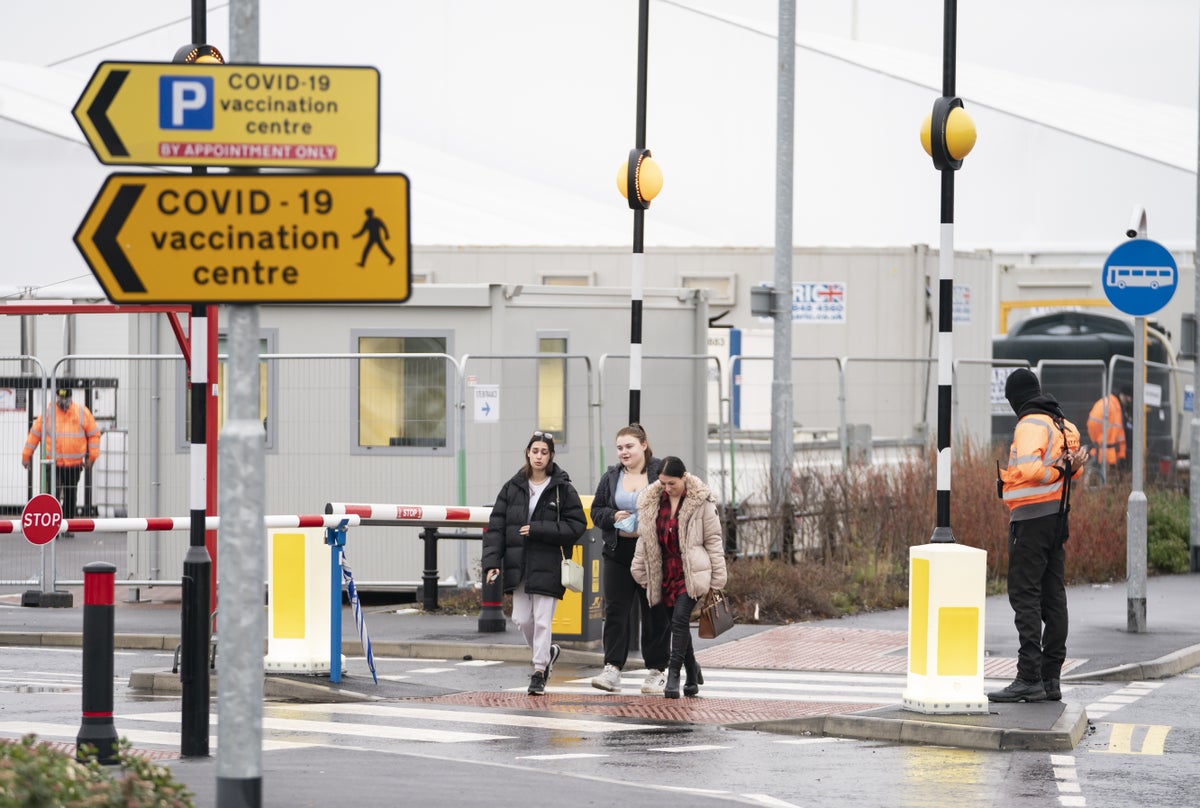
A “swarm” of new Covid subvariants could drive a fresh wave across Europe and North America by the end of November, experts have warned.
Covid-19 infections have surged 14 per cent, latest figures show, as subvariants of the Omicron family show immune evasive ability, according to early data.
According to the Biozentrum research facility at the University of Basel, which has been studying the evolution of the virus since the pandemic started, there is a “collective” of subvariants that are showing an ability to spread rapidly.
BQ1. and BA.2.75.2 are among the new subvariant scientists fear could drive a “significant wave” as the colder weather persists.
“The trends we’re seeing at the moment are very different from what’s happened in the past,” Cornelius Roemer, a computational biologist with Biozentrum, told The Independent.
“Omicron was maybe the first variant that was good at evading immunity and that’s why it caused such a large wave. Now for the first time, we see many lineages, many variants emerging parallel that all have very similar mutations and that all manage to still evade immunity pretty well,” he said.
Mr Roemer, who analyses Covid sequencing data from different lab databases worldwide and is part of the UK-led Pango Network that names new variants, said the current infection surge presents a new challenge for researchers because for the first time there isn’t a standout variant of concern but instead a collection or “swarm” of subvariants.
He added that the situation with new subvariants is constantly changing, with another immune evasive mutation – XBB – detected in China this week.
When compared to previous waves, Mr Roemer said the new subvariants are showing trends that could match more closely with the unexpected BA.5 led summer wave, but flagged concern that cases are increasing before the new variants have significantly accelerated and made up the majority of new cases.
“The thing now in the northern hemisphere is as temperatures are going down there is already a bit of a wave without the variants having much impact,” Mr Roemer said.
“The variants start accelerating when they reach 50 per cent of cases but we’re very far from that. All together the new variants are only around 5-10 per cent of new cases.

“That’s what’s a bit worrying,” he added, “That we already have cases going up and we know that there will be another surge due to the variants.”
Some 1.1 million people in private households tested positive for coronavirus in the latest survey, which covers the seven days to 17 September in England and the week to 20 September in the other three nations, according to the Office for National Statistics (ONS).
It is the first time the UK-wide total has been above one million since late August, though it is still some way below the 3.8 million weekly infections in early July at the peak of the wave caused by the Omicron BA.4 and BA.5 subvariants of the virus.
Covid cases across parts of Europe are surging also. According to recent data from the European Centre for Disease Prevention and Control, cases among people above 65-years-old rose by 9 per cent in September – the first increase observed across the region since the summer wave.
Based on growth trends of the new subvariants, Mr Roemer forecasts they could drive a wave in Europe and North America by the end of November.
Biozentum research group lead Professor Richard Neher agreed that a wave had already begun driven by the BA.2 and BA.5 offshoots. He insisted that while cases are increasing, which could put pressure on health systems if people are hospitalised, a significant portion of populations were vaccinated preventing the likelihood of severe illness.

“It is vaccinations that have led us out of this pandemic. And they will remain an important measure to prevent severe cases in the fall and winter,” Professor Neher said.
Virologist, Professor James Young said that the downscaling of Covid testing laboratories since the unveiling of the government’s Living with Covid plan means the UK is “blind” to the behaviour of new potential variants of concern. Major NHS “Lighthouse” labs closed earlier this year in line with the government’s policy on the infection.
“We’ve really taken our eye off the ball with Covid tests,” Professor Young told The Independent. “We can only detect variants or know what’s coming by doing sequencing from PCR testing, and that’s not going on anywhere near the extent it was a year ago.
“People are going to get various infections over the winter but won’t know what they are because free tests aren’t available – it’s going to be a problem.”







